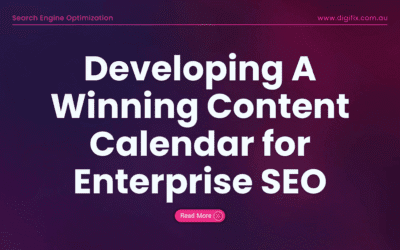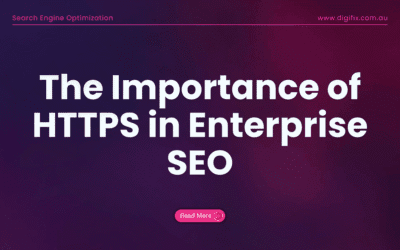In today’s digital landscape, having an online presence is crucial for businesses and individuals alike. A staggering 93% of online experiences begin with a search engine, making it imperative to understand the fundamentals of search engine optimization.
We will guide you through the basics of SEO, explaining its importance and relevance in enhancing your online visibility. Our comprehensive guide is designed to equip you with the knowledge needed to improve your website’s search engine rankings.
By grasping these SEO basics, you’ll be better positioned to navigate the complex world of search engines and drive more traffic to your site. We will cover the essential concepts and strategies to get you started on your SEO journey.
Key Takeaways
- Understanding the importance of SEO for online presence
- Learning the fundamental concepts of search engine optimization
- Gaining insights into how to improve website visibility
- Discovering strategies to enhance search engine rankings
- Getting started with implementing SEO techniques
What is SEO and Why Does it Matter?
In today’s digital landscape, SEO plays a vital role in determining online success. As we navigate the complexities of online marketing, understanding the fundamentals of SEO is crucial for businesses and organisations aiming to establish a strong online presence.
The Definition of Search Engine Optimisation
Search Engine Optimisation, or SEO, refers to the process of improving the visibility and ranking of a website in search engine results pages (SERPs) through various techniques and strategies. Effective SEO involves understanding how search engines work, identifying relevant keywords, and creating high-quality, engaging content that resonates with the target audience.
The Impact of SEO on Business Growth
SEO has a significant impact on business growth, as it enables companies to reach a wider audience, drive more traffic to their website, and increase conversions. By optimising their online presence, businesses can improve their visibility, build brand awareness, and stay ahead of the competition.
Increased Visibility and Traffic
A well-optimised website can lead to increased visibility in search engine results, driving more traffic to the site and potentially resulting in higher conversion rates. This, in turn, can lead to increased revenue and business growth.
Better User Experience
SEO is not just about search engines; it’s also about creating a better user experience for website visitors. By optimising website structure, content, and design, businesses can improve user engagement, reduce bounce rates, and increase overall satisfaction.
How Search Engines Work
To understand the importance of SEO, it’s essential to know how search engines work. Search engines use complex algorithms to crawl, index, and rank websites, providing users with relevant and accurate search results.
Crawling, Indexing, and Ranking
The process involves crawling, where search engines discover new content; indexing, where the content is stored and organised; and ranking, where the content is ordered based on relevance and other factors.
Understanding SEO Basics: Key Concepts and Terminology
To navigate the complex world of SEO, it’s crucial to grasp the fundamental concepts and terminology that drive search engine optimisation. As we explore these basics, you’ll gain a deeper understanding of how to improve your website’s visibility and ranking on search engines.
On-Page vs Off-Page SEO
On-page SEO refers to the practices used to optimise individual web pages to rank higher in search engines. This includes optimising content, meta tags, and internal linking. Conversely, off-page SEO involves actions taken outside of your website to impact your rankings, such as building high-quality backlinks and leveraging social signals.
Technical SEO Fundamentals
Technical SEO is about improving the technical aspects of your website to enhance its visibility and crawlability by search engines. Key elements include site speed optimisation, ensuring your site is mobile-friendly, and implementing a secure protocol like HTTPS.
Essential SEO Terms for Beginners
Understanding certain key terms is vital for anyone new to SEO. Let’s break down some of the most important ones:
SERP, CTR, Backlinks, and Domain Authority
- SERP stands for Search Engine Results Page, the page displayed by a search engine in response to a user’s query.
- CTR, or Click-Through Rate, measures the percentage of users who click on your website’s link after seeing it in the search results.
- Backlinks are links from other websites to yours, considered a vote of confidence by search engines.
- Domain Authority is a metric that predicts how well a website will rank on search engines, based on factors like backlink quality.
Algorithm Updates and Their Impact
Search engines frequently update their algorithms to improve the relevance and quality of search results. These updates can significantly impact your website’s ranking, making it essential to stay informed and adapt your SEO strategies accordingly.
Keyword Research: The Foundation of Effective SEO
Keyword research is the backbone of any successful SEO campaign, enabling businesses to target their audience effectively. By understanding what terms and phrases potential customers use when searching online, businesses can tailor their content to meet these needs, thereby enhancing their visibility in search engine results.
How to Identify Valuable Keywords
Identifying valuable keywords involves a combination of understanding your business, your target audience, and the competitive landscape. Long-tail keywords, which are more specific phrases with lower search volumes, can be particularly valuable as they often have less competition and higher conversion rates.
Long-tail vs Short-tail Keywords
Short-tail keywords are broad and highly competitive, making them challenging to rank for. In contrast, long-tail keywords offer a more targeted approach, allowing businesses to attract specific search queries. For instance, a business might target “Australian SEO services” (short-tail) or “SEO strategies for small businesses in Australia” (long-tail).
Tools for Keyword Research
Several tools can aid in keyword research, ranging from free options like Google Keyword Planner to paid services such as Ahrefs and SEMrush. For Australian businesses, tools that provide insights into local search trends and competitor analysis are particularly valuable.
Free and Paid Options for Australian Businesses
When selecting keyword research tools, Australian businesses should consider their budget and specific needs. Free tools can provide a good starting point, while paid services offer more advanced features and detailed analytics.
Understanding Search Intent
Understanding the intent behind a search query is crucial for effective keyword research. Search intent can be categorised into informational, navigational, commercial, and transactional types. By aligning content with the appropriate search intent, businesses can improve their relevance and ranking.
Informational, Navigational, Commercial, and Transactional
- Informational intent involves searches for knowledge or information.
- Navigational intent is when users search for a specific website or page.
- Commercial intent indicates a user is researching products or services with the intent to buy.
- Transactional intent signifies the user is ready to make a purchase.
On-Page SEO Techniques for Beginners
On-page SEO techniques are the building blocks of a successful search engine optimization strategy. As beginners, understanding these techniques is crucial for improving your website’s visibility on search engines.
Optimising Title Tags and Meta Descriptions
Title tags and meta descriptions are critical elements of on-page SEO. Title tags should be concise, descriptive, and include the primary keyword. For instance, a title tag like “SEO Basics: Understanding SEO Fundamentals” clearly communicates the content of the page. Meta descriptions, on the other hand, provide a brief summary of the page’s content and should entice users to click through from search engine results.
Here’s an example of how to structure title tags and meta descriptions effectively:
| Page Element | Example | Description |
|---|---|---|
| Title Tag | SEO Basics: Understanding SEO Fundamentals | Includes primary keyword and is descriptive |
| Meta Description | Discover the essentials of SEO and learn how to optimize your website for search engines. Improve your online presence with our comprehensive guide. | Provides a compelling summary and includes a call-to-action |
Creating SEO-Friendly Content
Creating content that is both informative and engaging is vital for SEO success. This involves structuring your content with appropriate headings and subheadings.
Heading Structure and Keyword Placement
Using headings (H1, H2, H3, etc.) helps structure your content and highlights important keywords. Ensure your primary keyword appears in at least one heading. For example, using an H2 tag like “Understanding SEO Basics” can help search engines understand the content’s relevance.
Readability and User Engagement
Content readability is crucial for keeping users engaged. Use short paragraphs, bullet points, and concise language to enhance readability. For instance:
- Use short sentences and paragraphs.
- Break up content with subheadings and bullet points.
- Incorporate relevant images to enhance user engagement.
Internal Linking Strategies
Internal linking helps users navigate your website and assists search engines in understanding your site’s structure. Link to relevant pages using descriptive anchor text. For example, linking to a related article with the anchor text “learn more about SEO basics” can enhance user experience and SEO.
By implementing these on-page SEO techniques, beginners can significantly improve their website’s search engine rankings and overall online presence.
Technical SEO Elements You Need to Know
Understanding the technical aspects of SEO is crucial for improving your website’s visibility in search engine results. Technical SEO encompasses various elements that enable search engines to crawl, index, and rank your website efficiently.
Site Speed Optimisation
One critical aspect of technical SEO is site speed optimisation. A faster website enhances user experience and is favoured by search engines. Techniques such as image compression and caching can significantly improve site speed.
Image Compression and Caching
Image compression reduces the file size of images, while caching stores frequently-used resources locally. Both techniques reduce the time it takes for your website to load, improving overall performance.
Mobile-Friendliness
With the majority of users accessing websites through mobile devices, mobile-friendliness has become a critical factor in SEO. A responsive design ensures that your website adapts to different screen sizes and devices.
Responsive Design Principles
Responsive design involves using flexible grids, images, and media queries to create a seamless user experience across various devices. This approach ensures that your website is accessible and usable, regardless of how users access it.
URL Structure and Site Architecture
A well-organised URL structure and site architecture are essential for helping search engines understand your website’s content and hierarchy. A logical structure makes it easier for users to navigate your website.
HTTPS and Security Considerations
Finally, ensuring the security of your website is vital. Migrating to HTTPS is now a standard practice, as it provides a secure connection between your website and users’ browsers. Other security considerations include regularly updating software and plugins to prevent vulnerabilities.
Off-Page SEO Strategies for Building Authority
To dominate search engine rankings, mastering off-page SEO is essential. Off-page SEO involves techniques that improve your website’s visibility and credibility beyond your own website.
Link Building Fundamentals
Link building is a critical off-page SEO strategy that involves acquiring hyperlinks from other websites to your own. Quality backlinks are crucial as they signal to search engines that your content is valuable and worthy of citation.
Quality vs Quantity in Backlinks
It’s not just about accumulating a high number of backlinks; it’s about getting links from authoritative and relevant sources. For instance, a single backlink from a reputable Australian business directory can be more valuable than multiple links from low-quality sites.
Social Signals and Their Impact
Social signals, such as likes, shares, and comments on social media platforms, can influence your website’s visibility in search engine results. While their direct impact on SEO is debated, they contribute to increased brand awareness and can drive traffic to your site.
Local SEO Considerations for Australian Businesses
For businesses operating in Australia, local SEO is vital. This includes optimising your Google My Business listing and being listed in relevant Australian business directories.
Google My Business Optimisation
Claiming and optimising your Google My Business listing helps your business appear in local search results. Ensure your listing is accurate, up-to-date, and includes relevant keywords like “SEO basics for small business.”
Australian Business Directories
Listing your business in reputable Australian directories can improve your local search visibility. It’s a way to build high-quality backlinks while also reaching local customers.
By implementing these off-page SEO strategies, businesses can enhance their online authority and improve their search engine rankings. As we continue to learn SEO basics, understanding the nuances of off-page SEO is crucial for a comprehensive SEO strategy.
Content Strategy for SEO Success
A well-planned content strategy is crucial for achieving SEO success. It involves creating content that is not only high-quality and relevant but also optimised for search engines.
Creating High-Quality, Relevant Content
To create effective content, it’s essential to understand the principles of E-A-T: Expertise, Authoritativeness, and Trustworthiness. Demonstrating expertise in your subject matter helps build credibility with your audience.
E-A-T Principles
Ensuring your content showcases expertise, is backed by authoritativeness, and is presented in a trustworthy manner is vital. This can be achieved by:
- Providing well-researched information
- Citing credible sources
- Avoiding misleading or false content
Content Formats That Perform Well in Search
Different content formats can significantly impact your SEO efforts. Some of the most effective formats include:
Blog Posts, Guides, and Visual Content
- Informative blog posts that address specific queries
- Comprehensive guides that offer in-depth information
- Visual content such as infographics and videos
Content Calendar Planning for SEO
Planning your content in advance using a content calendar can help ensure consistency and relevance. It allows you to:
- Schedule content around key events or trends
- Organise and manage your content pipeline efficiently
Australian Seasonal Trends and Opportunities
Understanding seasonal trends in Australia can help you tailor your content to meet the needs of your audience during different times of the year. This can include creating content related to summer holidays, winter sales, or other seasonal events.
Measuring SEO Performance: Tools and Metrics
To gauge the effectiveness of our SEO efforts, we need to measure performance using the right tools and metrics. Understanding how to measure SEO performance is crucial for any digital marketing strategy, especially for those looking to learn SEO basics.
Essential SEO Analytics Tools
Several tools are available to help measure SEO performance. The most prominent among these are Google Analytics and Search Console.
Google Analytics and Search Console
Google Analytics provides insights into website traffic, engagement, and conversion rates. Search Console, on the other hand, offers data on search engine rankings, impressions, and clicks. Together, they provide a comprehensive view of a website’s SEO performance.
Australian-Specific SEO Tools
For businesses targeting the Australian market, tools like Ahrefs and SEMrush can offer valuable insights. These tools can help identify local keywords, analyze competitors, and track rankings.
Key Performance Indicators to Track
To understand SEO performance, we need to track key performance indicators (KPIs).
Organic Traffic, Rankings, and Conversions
Some of the most important KPIs include organic traffic, search engine rankings, and conversion rates.
- Organic traffic refers to the number of visitors coming from search engines.
- Rankings indicate the position of our website in search engine results pages (SERPs).
- Conversion rates measure the percentage of visitors who complete a desired action.
By monitoring these KPIs, we can refine our SEO strategies to improve performance.
Understanding Search Console Reports
Search Console reports provide valuable data on how our website appears in search results. We can use this information to identify areas for improvement, such as pages with high impressions but low click-through rates.
Setting Realistic Timeframes for SEO Results
SEO is a long-term strategy. It’s essential to set realistic timeframes for achieving results. Generally, noticeable improvements can be seen within 3-6 months, but significant results may take up to a year or more to materialise.
By understanding the tools and metrics available, we can effectively measure SEO performance and make data-driven decisions to improve our SEO basics and overall digital marketing strategy.
Conclusion: Taking Your First Steps in SEO
As we have explored the world of SEO, it’s clear that understanding SEO basics is crucial for beginners looking to improve their online presence. By grasping the fundamentals of SEO, including keyword research, on-page optimisation, and technical SEO, you can set your website up for success.
We’ve covered the essential concepts and terminology, and now it’s time to put this knowledge into practice. As you start your SEO journey, remember that it’s a long-term strategy that requires patience, persistence, and continuous learning. Focus on creating high-quality, relevant content that resonates with your target audience, and don’t be afraid to experiment and adapt your approach as needed.
By following the seo basics for beginners and continuing to learn about understanding seo for beginners, you’ll be well on your way to improving your website’s visibility, driving more traffic, and achieving your online goals.





0 Comments